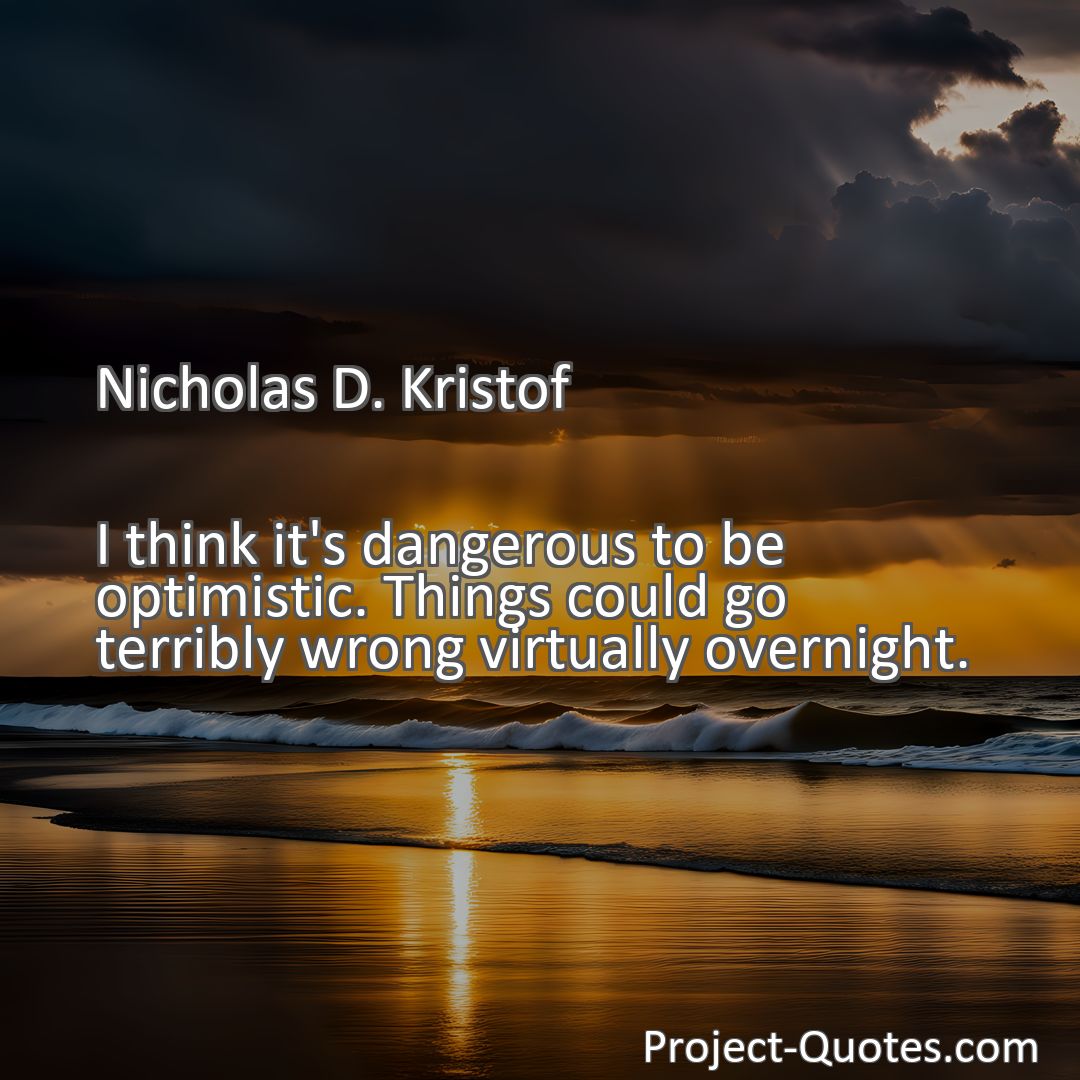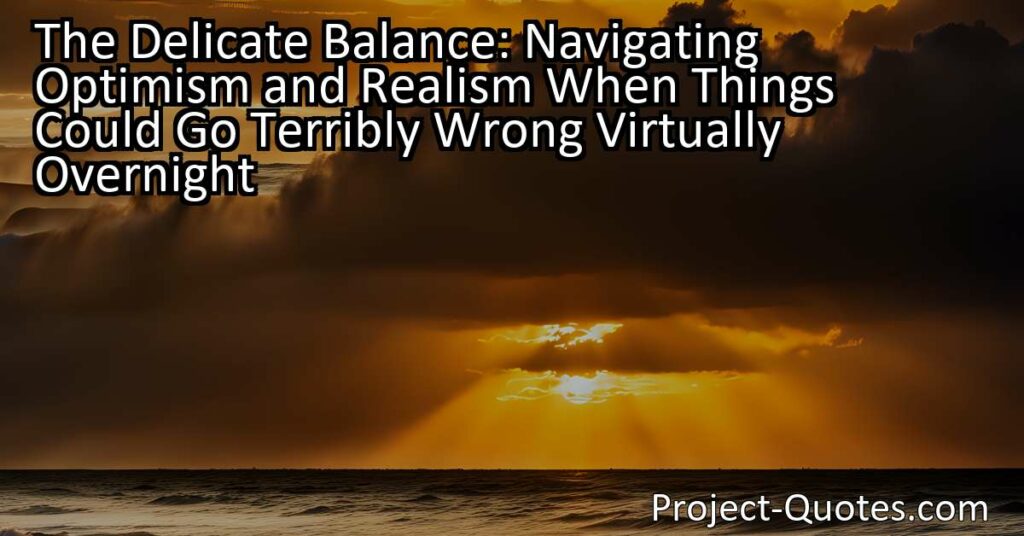I think it’s dangerous to be optimistic. Things could go terribly wrong virtually overnight.
Nicholas D. Kristof
Nicholas D. Kristof’s cautionary quote sheds light on the delicate balance between optimism and realism, highlighting the need to approach life’s uncertainties with a balanced perspective. Embracing optimism while acknowledging the possibility of things going wrong allows individuals to navigate challenges more effectively and make informed decisions in a fast-paced and unpredictable world.
Table of Contents
Meaning of Quote – I think it’s dangerous to be optimistic. Things could go terribly wrong virtually overnight.
The Fine Balancing Act: Questioning Optimism and Embracing Realism
Introduction
In today’s fast-paced world where uncertainty reigns, Nicholas D. Kristof’s thought-provoking quote, “I think it’s dangerous to be optimistic. Things could go terribly wrong virtually overnight,” sheds light on the delicate balance between optimism and realism. As we navigate through life’s challenges, it becomes crucial to examine the dangers of blind optimism and the significance of realistic expectations. This essay aims to explore the implications of Kristof’s quote in various aspects of life, emphasizing how a nuanced approach can better equip us to face uncertainties and make informed decisions.
The Pros and Cons of Optimism
Optimism, often deemed a desirable trait, is the belief that the future holds favorable outcomes. It acts as a guiding force, motivating individuals to persevere through adversity and providing hope during challenging times. However, unchecked optimism can have its drawbacks. Blindly relying on optimism without considering the underlying realities can lead individuals astray and set them up for disappointment. It’s imperative to strike a balance between unwavering optimism and pragmatic realism.
Historical Examples
Throughout history, there have been moments where unchecked optimism has proven hazardous. For instance, the “Dot-com Bubble” in the late 1990s saw investors blindly optimistic about internet-based companies’ prospects, leading to an eventual market crash. Likewise, the 2008 global financial crisis occurred in part due to the overly optimistic belief that housing prices would continuously rise, neglecting the underlying risks. These examples illustrate the dangers of ignoring caution and blindly hoping for the best.
Importance of Realism
While optimism has its merits, embracing realism is equally vital. Realism compels individuals to assess situations objectively, acknowledging potential risks and formulating contingency plans. By recognizing the possibility of things going wrong, individuals become better prepared to navigate the unpredictable nature of life. Accepting potential setbacks doesn’t mean succumbing to a pessimistic attitude; rather, it allows for informed decision-making and calculated responses to challenges.
Finding a Middle Ground
Rather than perceiving optimism and realism as opposing forces, it is essential to find a middle ground that combines their strengths. By cultivating an optimistic yet realistic mindset, individuals can maintain a positive outlook while remaining grounded. This approach fosters resilience, adaptability, and the ability to cope with uncertainties effectively. Acknowledging the potential for things to go awry while maintaining a positive attitude not only aids personal growth but also helps build stronger communities.
The Power of Balanced Thinking
Adopting a balanced mindset extends beyond personal well-being; it also influences problem-solving and decision-making on a larger scale. When confronting societal issues, a realistic understanding of the challenges at hand is essential. However, completely dismissing optimistic possibilities inhibits progress and stifles innovation. By integrating optimism and realism, individuals can identify opportunities without ignoring potential risks, fueling progress while mitigating pitfalls.
Conclusion
Nicholas D. Kristofs cautionary quote on the dangers of unchecked optimism serves as a reminder to approach life’s uncertainties with a balanced and thoughtful perspective. While optimism motivates and inspires, its potential pitfalls highlight the need for realism. By embracing both, individuals can navigate challenges more effectively, make informed decisions, and adapt to ever-changing circumstances. In this fine balancing act, we can harness the power of optimism’s hope while acknowledging the reality of potential setbacks.
I hope this quote inspired image brings you hope and peace. Share it with someone who needs it today!


